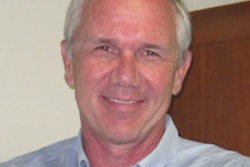
DrBicuspid.com is pleased to present the next installment of Leaders in Dentistry, a series of interviews with researchers, practitioners, and opinion leaders who are instrumental in changing the practice of dentistry.
After dental school, Kianor Shah, DMD, went into private practice with an established practitioner, then purchased his own practice. After building that practice, Dr. Shah worked as a consultant to group dental practices, observing what worked and what did not within a group practice. Dr. Shah is finishing up a Master of Business Administration while limiting his clinical practice to implantology and oral surgery procedures.
He is also the chairman of Dental Equities, a decentralized peer-to-peer platform where dental professionals can come together administratively, academically, and financially for the benefit of patients and the dental professional, according to its website. Dental Equities is holding its first continuing education event in late June in Southern California.
DrBicuspid.com talked with Dr. Shah about what drove him to found Dental Equities, what he believes are the advantages of private practice, and where group practices may go wrong.
DrBicuspid.com: How did you go from a thriving private practice to founding a firm to help other dentists in private practice?
 Kianor Shah, DMD.
Kianor Shah, DMD.
Dr. Shah: Throughout dental school I was interested in the concept of delegating tasks within a practice to enable my colleagues to be more focused on the patient. I graduated from dental school, associated with a doctor, and learned so much from him. After six months, I purchased my first practice with the help of that other doctor and a conventional bank loan.
After you built your practice, you became a practice management consultant, working with group practices. But now you have founded an organization that works to strengthen private practices. Why is that?
Over the course of these last eight years, I have worked with a dozen members of the largest dental management services organizations and members of the Dental Group Practice Association and have observed their operations very thoroughly. As I learned more, I started questioning the concept of how a group practice serves us in the profession and if it is a viable model.
In what way?
Where we are going wrong here and what people particularly don't understand is that office managers in these dental practices are there to satisfy management, not to serve the patients or the dentists.
I believe you cannot separate the business side with the clinical side of dentistry. They are so interwoven. For example, some of these larger corporations might have an individual with a master's degree looking at what kind of cement they are going to purchase and saying, "We're going to get this cement because it's cheaper." The alternative is to have a dentist sitting there and evaluating why this is better for the patient.
Do you take issue with the corporate structure of some group practices, with nondentists having ownership positions?
“I believe you cannot separate the business side with the clinical side of dentistry.”
Yes. The dental practice acts, generally speaking, require a dentist's agreement with management entities to not compromise the fundamental public purpose of the act, which is ensuring that patients have access to high-quality dental care that is owned, controlled, and supervised by licensed and professional dentists with demonstrated clinical skills who are accountable for their actions.
So there is a big difference between setting up a de facto management entity backed by private equity, and placing one doctor's name on multiple offices to make it appear compliant, versus actually having a dentist own the practice or have oversight of management.
What do you say to people who think state laws preventing nondentists from owning these companies are wrong?
There are very good reasons as to why those laws were written -- to prevent what is happening today. Those who wrote these laws precisely knew that if nondentists and private equity groups took an equity position or any executive role in a dental business or management thereof, it would inevitably create conflicts in fiduciary duty to patients. Not only were they right, but now it behooves us to clean up the mess these third parties have created -- as evident by waves of media exposure, and the avalanche of cases draining our courts, tax system, and the morale in our profession, while wasting vast financial and political resources that could actually increase access to care by empowering dentists.
I'd prefer that management provided services a la carte, with an agreed-to flat fee for services to be provided, detailing the scope of services, and contractually outlining management's role. Management fees should not be tied to the income generated by the practice. When corporate bureaucracy becomes the dominant factor for personalized treatment, we have compromised our own ethical code as dental professionals.
What do you say to your colleagues just out of dental school who have massive debt and think that ownership of a practice is beyond them?
These companies do use this financial situation to entice these dentists to join them. I would tell my senior colleagues that we must unite and enable our junior colleagues, to show them that associating with an existing doctor as a stepping stone to your own practice is still viable.



















